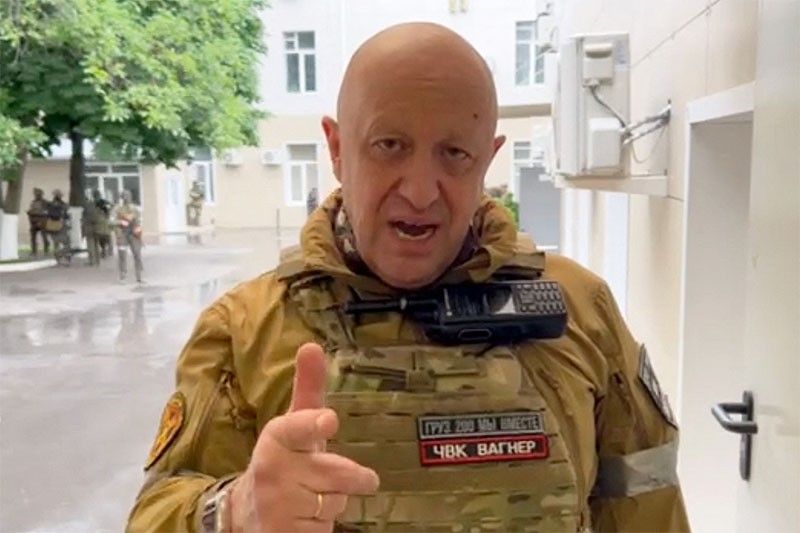Wagner boss 'gone off the rails' over money: Russian TV

MOSCOW, Russia — A top Russian propagandist on Sunday accused the Wagner boss of going "off the rails" after receiving billions in public funds, as Moscow's new narrative takes shape after Wagner's brief mutiny.
Last weekend the head of the Wagner mercenary group, Yevgeny Prigozhin, led his forces in a short-lived rebellion against Russia's top military brass, in a huge embarrassment for the Kremlin.
"Prigozhin has gone off the rails because of big money," Dmitry Kiselev, one of the main faces of the Russian propaganda machine, said on his weekly television show on Sunday.
"He thought that he can challenge the defense ministry, the state itself and the president personally."
Kiselev said that Wagner's operations in Syria and Africa had given Prigozhin a feeling of impunity that was later reinforced by his rag-tag forces' battlefield successes in eastern Ukraine.
Without providing any evidence, Kiselev said Wagner had received more than 858 billion rubles ($9.7 billion) in state funds.
In a stunning admission earlier this week, President Vladimir Putin said for the first time that Russian authorities "fully" financed the paramilitary outfit.
Between May 2022 and May 2023, Wagner received more than 86 billion rubles from the Russian state, Putin said.
Private mercenary groups are banned under Russian law.
The Wall Street Journal reported Sunday that agents from the Federal Security Services have raided the headquarters of the Wagner Group in St. Petersburg to find evidence against Prigozhin.
The headquarters said Saturday on Telegram that it was moving but would remain operational albeit under a "new format."
Targeted by sanctions from Washington and Brussels, Prigozhin had for years operated in the shadows but has catapulted into the limelight since Putin sent troops into Ukraine in February 2022.
In profanity-laced diatribes, he accused the Russian military of attempting to "steal" victories from Wagner in eastern Ukraine and slammed Moscow's "monstrous bureaucracy" for slowing military gains.
Prigozhin was allowed to recruit fighters from prisons and in March, Russian lawmakers approved legislation introducing lengthy prison terms for those who criticise "volunteer groups" such as Wagner.
Last month Prigozhin abandoned his advance on Moscow and struck a deal with the Kremlin under which he accepted exile in neighboring Belarus.
Many political observers saw Prigozhin's attempt at insurrection as a sign that Putin's grip on power is weakening.
Moscow officials and propagandists insist, however, that Russians have rallied around Putin.
On Sunday, Vyacheslav Volodin, the speaker of Russia's lower house of parliament, wrote that Putin emerged out of "this very difficult situation" even stronger.
"He did everything to prevent bloodshed," Volodin wrote on messaging app Telegram.
"If there had been people like Putin at the helm of the state in 1917 and 1991, there would have been no revolution and no collapse of the USSR."
- Latest
- Trending





























